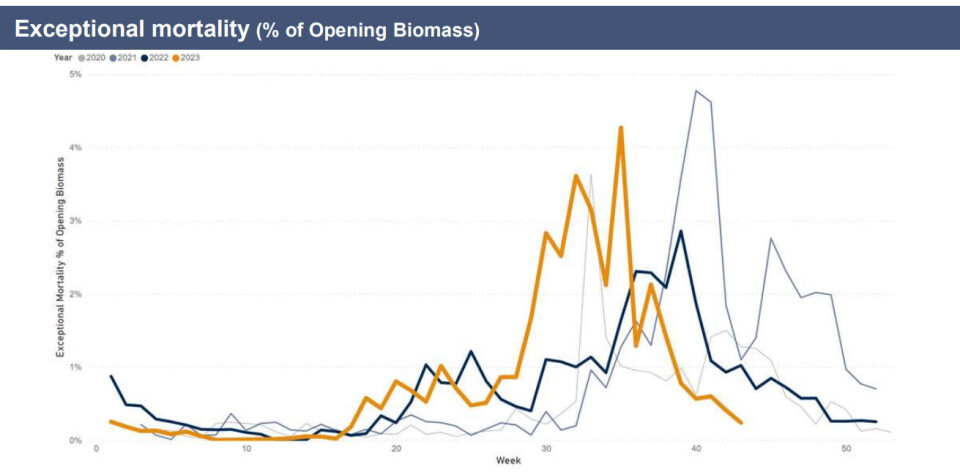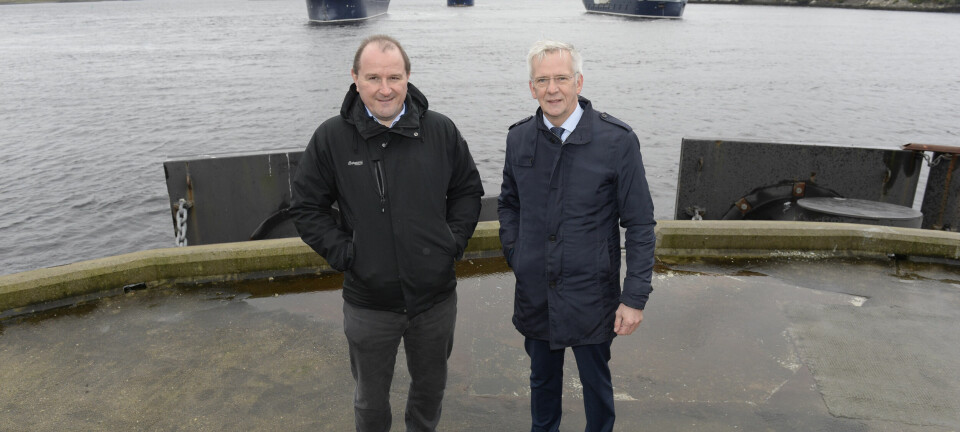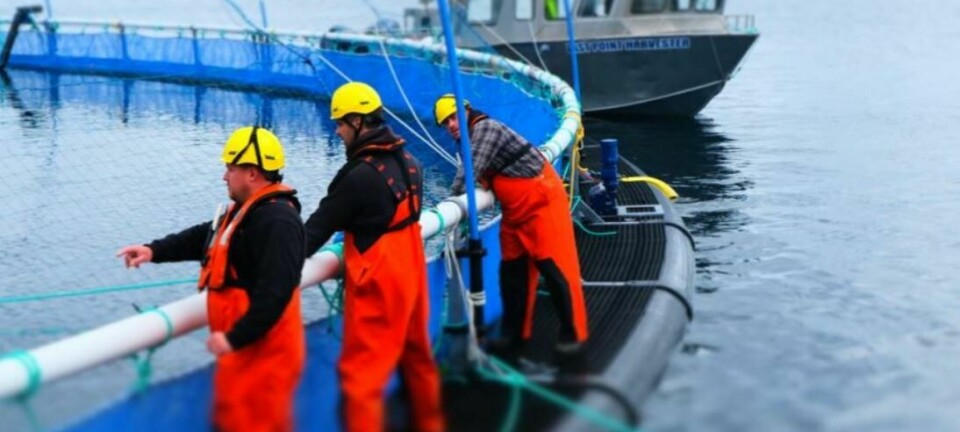
Bakkafrost Scotland cuts 2023 harvest estimate for second time
Farmer will keep fish in water until next year to improve size and price achievement
Salmon farmer Bakkafrost Scotland has reduced its 2023 harvest estimate for the second time this year, to 20,000 gutted weight tonnes, due to a strategic decision to leave fish in the water in the current quarter to gain weight and value.
The Faroese-owned farmer had a challenging third quarter, with incident-based mortality costs of DKK 184 million (£21.4m), up from DKK 121m in Q3 last year. But it said it has seen conditions improve since mid-September, prompting its decision to delay some harvesting until Q1 2024 when spot prices are anticipated to be higher, and it will have bigger fish to sell.
Bakkafrost Scotland announced in August that its forecast 2023 harvest volume of 30,000 gwt could be reduced by as much as 5,000-6,000 tonnes (16.7-20%) due to biological problems with fish in their second summer in marine sites.
Little harvesting in Q4
The Scottish operation harvested 19,536 tgw in the first nine months of 2023, and expects to harvest fewer than 1,000 tgw in Q4, it said in its Q3 2023 report. This means its original harvest guidance for 2023 has been cut by a third.
Bakkafrost Scotland plans to harvest 25,000 gwt next year.
“The Scottish marine operation had a challenging biological development in this quarter,” Bakkafrost said in its Q3 2023 report. “The main challenge was micro-jellyfish combined with primary (predisposing) factors and secondary (subsequent) complications leading to increased mortality.
“As previously disclosed, the biological challenges arrived earlier than in recent years, but have in return eased off earlier as well. Hence, from mid-September, the biology improved significantly. The upscaled freshwater dual treatment capacity in Scotland had a positive impact on fish gill health and ensured low sea lice levels. This has reduced the potential impact of the biological threats during the quarter.
Market value
“To leverage the improved biological development since mid-September, Bakkafrost plans to reduce Q4 2023 harvest volume to under 1,000 tonnes, allowing fish to grow larger, similar to Bakkafrost’s approach in Scotland in Q4 2022. This shift will push some harvest volume into Q1 2024, enhancing market value through higher average weights and better prices.”
Bakkafrost’s dual freshwater treatment entails giving fish a freshwater bath on board the 4,000m³-capacity Ronja Star wellboat and then putting them through a gentle FLS delousing system that uses “cyclones” of water to wash any remaining lice off the salmon.























































